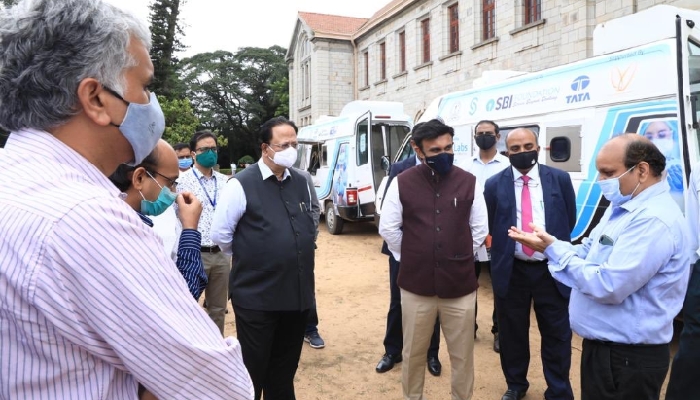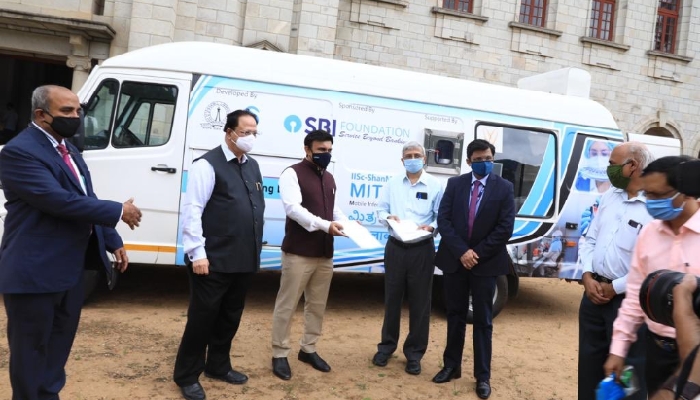Chennai, Jul 25: Two weeks after a 62-year-old widow accused him of harassment, including urinating outside her house, the Chennai Police on Saturday registered an FIR against ABVP national president Dr Subbiah Shanmugam.
Dr Shanmugam, Professor and HOD, Department of Surgical Oncology, Kilpauk Medical College and Government Royapettah Hospital, has been booked under sections 271 (disobedience to quarantine rule) and 427 (mischief causing damage) under the Indian Penal Code (IPC) and Tamil Nadu Women Harassment Prevention Act.
The FIR was lodged exactly two weeks after the woman’s relative Balaji Vijayaraghavan filed a complaint with the Adambakkam police accusing Dr Shanmugam of harassing his aunt, who is living alone in her apartment following her husband’s death last year, following an argument over a parking slot.
The action came after Vijayaraghavan alleged that the police were not filing an FIR due to the ABVP functionary’s “political connections.”
Dr Shanmugam and the woman were living in the same apartment complex in Nanganallur and an argument broke between them over a parking slot.
“He wanted to use our parking lot. We agreed but demanded a nominal charge for using it. He was outraged by our demand and even broke our signboard at the parking lot,” Vijayaraghavan wrote in his complaint.
He also alleged that Dr Shanmugam began harassing her by throwing “pieces of chicken” outside her apartment despite knowing she is a vegetarian.
CCTV footage corroborates with the allegations of urinating outside the residence of the widow. However, the ABVP called the incident as a “malicious and derogatory propaganda” by the Congress’ student wing of NSUI.
"The video shared by NSUI with an allegation of harassment is tampered with and is being used with malafide intentions. The two families have discussed this within their housing society and have already concluded that the harassment allegations were caused due to misunderstandings and are untrue,” ABVP National General secretary Nidhi Tripathi said.
Vijayaraghavan also alleged in his two-page written complaint that the ABVP national president had urinated outside the woman’s apartment gate and had been throwing garbage and used masks at her gate.
In his complaint, Vijayaraghavan also said the family was “concerned about her safety” while asking police to take action against Dr Shanmugam, who he says, “has a bad track record in maintaining rapport with neighbours.”
Also Read: ABVP national president accused of harassing woman, urinating at her doorstep
 The deceased has been identified as Sr Arul Selvi (35) who was working as a part time teacher in Nirmal English medium school at Karunalaya Ashram.
The deceased has been identified as Sr Arul Selvi (35) who was working as a part time teacher in Nirmal English medium school at Karunalaya Ashram.






Comments
For their tension marriage is only a solution, polygamy system is restricted in Christianity and Jesus also will marry one only, it is waste waiting for him and spoiling own life for nothing.
very sad .....may God give her eternal rest
Add new comment